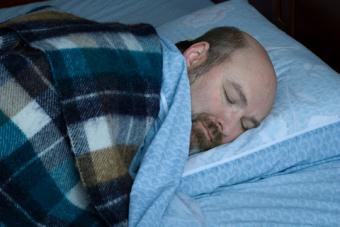
Falling asleep while driving occurs can be life threatening. Drowsiness reduces the amount of attention given to the driving task. Many people can attest to falling asleep or driving while drowsy.
Falling Asleep While Driving Causes
Driving requires focus and concentration, two things those who are tired do not have. By understanding the causes of sleepiness and drowsy driving, you may be able to reduce your risks of being involved in an accident or incident.
Sleep Restriction or Loss
One of the largest factors related to drowsiness while driving is a short duration of sleep. Sleep experts state that most people need between six and eight hours of sleep per night, every 24 hours. Those who sleep less than four consecutive hours per night may impair their ability to be vigilant. Acute sleep loss such as not sleeping for one night, can result in extreme sleepiness.
Sleep is a cumulative process. If you lose one or two hours per night over several days or weeks, you accumulate sleep debt. This can lead to chronic sleepiness over time. The only way to improve the sleep debt is to get enough sleep on a regular basis. There are many reasons for sleep loss like this.
- Job Related Sleep Restriction: Working nighttime hours can cause a lack of ability to sleep. This may be caused by working more than one job or working extended hours. Working too many hours per week can also lead to excessive sleep loss.
- Personal Demands: A lack of scheduling time for sleep can also be a factor. People often have family responsibilities and work schedules to manage. All of the demands and lifestyle choices can cause a lack of time to sleep. The misconception that sleep is a luxury often leads to these poor decisions.
Sleep Fragmentation
Not only do people not get enough hours in bed, they also do not get enough constant sleep. Spending eight hours in bed does not mean you have obtained enough sleep. Many things including untreated sleep disorders can cause sleep restrictions. Other causes include noise, children, activities, being on call at work and even a spouse who snores.
Circadian Factors
Every person has an internal clock, which keeps the body working properly. This circadian pacemaker regularly produces hormones, which make people sleepy. This usually happens in the afternoon and in the evening. Those who work or are engaged in other activities during these times may become sleep deprived. Falling asleep at other times can be more difficult.
Characteristics of Drowsy Driving
Unlike alcohol and drug related car accidents, driving while sleepy is not easy to pinpoint. An individual involved in a car accident may experience hyperactive arousal following the incident. This may make it difficult for anyone to know that sleep was a factor in the accident.

Police, investigators and researchers use some characteristics to determine if an accident is sleep related.
- Late Night Accidents: Many of the accidents involving a lack of sleep occur in late night hours, usually after midnight. There is a secondary peak in the mid afternoon.
- Crash on a High Speed Road: Drowsy driving crashes often take place on highways and major roadways where the speed limit exceeds 55 mph.
- Driver Does Not Avoid Crash: Most people who are involved in a crash try to swerve out of the way to avoid it. A driver who has fallen asleep at the wheel may not do so. There may be an absence of skid marks or brake lights.
- Single Vehicle: When a single vehicle leaves the roadway resulting in an accident, this is an indication of the driver falling asleep at the wheel. In addition, it is also likely that sleepiness plays a role in some rear-ending accidents.
- Seriousness of Incident: Some reports state the risk of morbidity among drowsy drivers is very high. This may be because of a combined number of factors including the increase sleep.
- Driver Is Alone: A driver that is alone while driving and involved in a car accident may be an indication that a lack of sleep played a role in the accident, especially when alcohol was not involved.
Falling asleep while driving can cause life-threatening accidents, even if an individual is only somewhat tired. The National Highway Traffic Safety Administration offers more information, including research studies related to the effects of sleep deprivation and driving.







